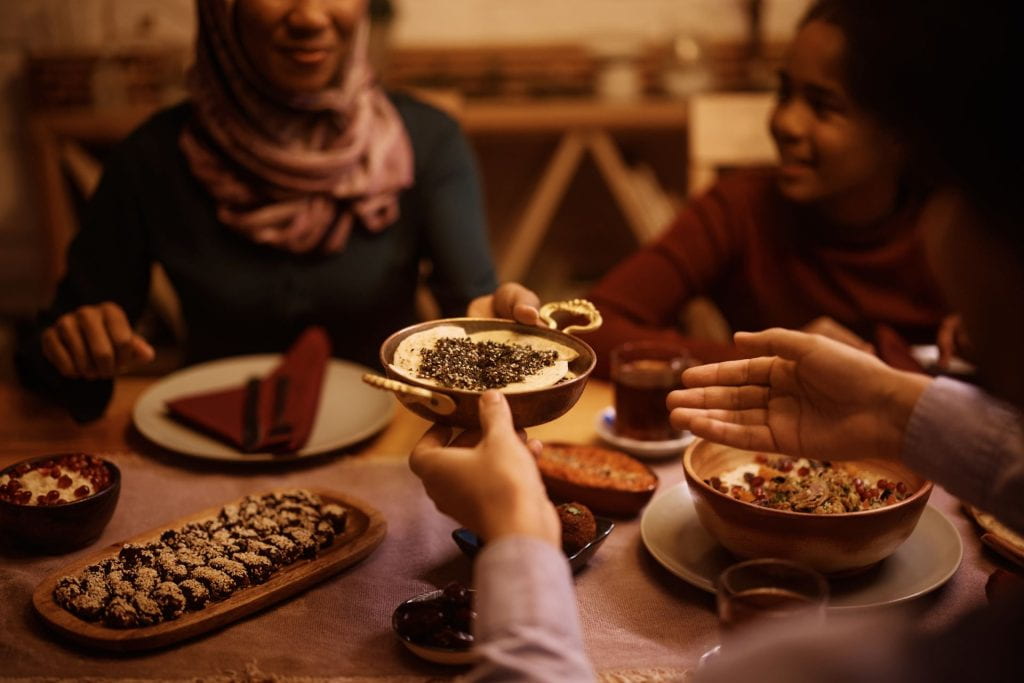 As a nonprofit professional, I have discovered that the world of fundraising and philanthropy is filled with stories of everyday people making positive changes in their communities and establishing legacies that extend beyond their own lives. . The Muslim Philanthropy Initiative has released a study on “Motivations for Giving” that explores why American Muslims engage in philanthropy. This detailed study highlights how powerful American Muslim charitable giving is within the fabric of American philanthropy. Muslims, a faith-based giving demographic, consider religious and spiritual incentives to donate when deciding where to donate, how to donate, and even when to donate.
As a nonprofit professional, I have discovered that the world of fundraising and philanthropy is filled with stories of everyday people making positive changes in their communities and establishing legacies that extend beyond their own lives. . The Muslim Philanthropy Initiative has released a study on “Motivations for Giving” that explores why American Muslims engage in philanthropy. This detailed study highlights how powerful American Muslim charitable giving is within the fabric of American philanthropy. Muslims, a faith-based giving demographic, consider religious and spiritual incentives to donate when deciding where to donate, how to donate, and even when to donate.
My work as a Development Director is based on bridging the gap between individuals who have the ability and desire to contribute and the organizations whose work is meaningful to them. American Muslim philanthropy is booming. Muslim nonprofits in the United States are full of even more possibilities as local organizations take a professional approach not only in fundraising but also in the overall management of programs, people, and operations. Donors are increasingly demanding standards of transparency, accountability, and the Arabic word for excellence and beautification of conduct: īsan.
In a recent interview with Religion News, I was asked how fundraising and development professionals at American Muslim nonprofits navigate their work during the holiest time of the year for Muslims. I did. Where is the balance between one’s own spiritual life and work obligations during Ramadan? What if everyone behind the scenes and in public fasted during the day and prayed at night?
Ramadan is not only a month of fasting and prayer, but also a time when the Muslim community explores opportunities for charity. I shared how the organization I work for, Labata, works on strategizing ahead of time, making detailed plans, and keeping a higher purpose in mind. As American Muslim nonprofit experts, our job is to provide clear, easy, and even fun ways for people who want to donate to support the work they love at a time when faith-based giving is on the rise. It’s about providing a reliable method.
For example, nonprofits recognize trends in philanthropy during Giving Tuesday, research high giving reports during the year, and develop fundraising strategies months in advance. It’s important to give faith-based giving season the same thoughtfulness and consideration, especially with its emphasis on spiritual incentives. Faith-based giving incentives are just as important as faith-based fundraising incentives.
Prophet Muhammad (peace and blessings be upon him) is reported to have said:
He who leads someone to good will receive the same reward as the one who did it. ”
Just as investors are encouraged to add to their stock portfolios for potential dividends, Muslim donors expect long-term rewards that extend beyond their lifetimes. Faith-based fundraising and philanthropy commonly rely on heritage texts as a foundational element for donor education and calls for philanthropic giving. For Muslims, Quranic verses, prophetic stories, and the wisdom of centuries of Islamic scholars are used to share the benefits of giving. Jalaluddin Rumi, a famous 13th century poet, Islamic jurist, Islamic scholar, and theologian, wrote:
Give what you can before death takes away what you have.
Apart from the compulsory 2.5% of annual savings classified as zakat, all other donations are open and encouraged for Muslims. This type of widespread and common donation is considered sadaqa. This is a type of donation that goes beyond legal donation obligations and comes from within. Muslim scholars working in the field of Islamic spirituality discuss the spiritual aspects of sadaqah. This is because this type of donation can be hindered by traits such as greed or pickiness. Giving can be used as a spiritual exercise to help a person move towards more desirable traits such as generosity and compassion.
Dr. Tamara Gray, an American Islamic scholar based in Minnesota and executive director of Rabata, explains that sadaqah can be more than a monetary donation. Therein lies the sadhaka of time, treasure, and talent. Voluntary donations of all kinds can foster spiritual experiences. As an American Muslim, I value the practical application of my faith’s values and value the spiritual moments that help me elevate the work that is dear to my heart.
About the author

Afshan Malik is currently the Development Director at Rabata and was the Program Manager from 2017 to 2019. She earned a bachelor’s degree in English and literature from the University of Illinois and a master’s degree in nonprofit management from the University of Houston-Downtown. She graduated in 2020 as part of the first cohort of the Libert Academic Institute for Islamic Studies Teacher Certification.
In her nonprofit work, Afshan is always seeking opportunities to expand her skillset, through which she benefits and leads Rabata’s fundraising strategy. With this goal of hers in mind, she earned a certificate in social media marketing management and fundraising management from the Indiana University Lilly Family School of Philanthropy.
When he’s not researching grant proposals or writing reports, Afshan likes to indulge in Dr. Pepper, naps, and historical fiction. Although she is from Chicago, she currently lives in Houston, Texas with her husband and her five children. She is the author of a young adult novel titled. pieceThe book tells the story of a close-knit family grappling with the struggles of adolescence, mental illness, and change, and is published by Daybreak Press.


